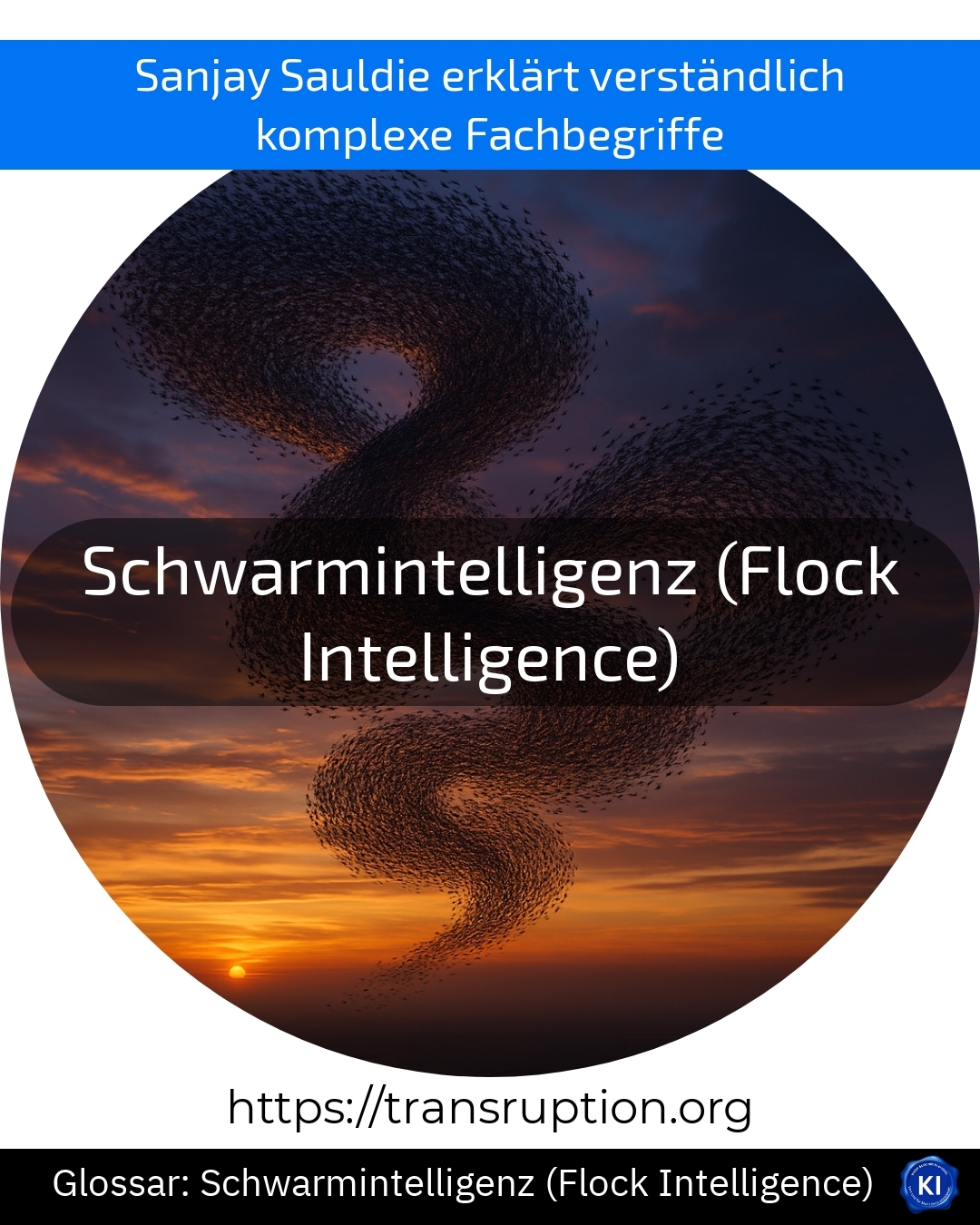Flock intelligence is particularly at home in the categories of artificial intelligence, automation and digital transformation. The term describes how many individual, often simple units - such as humans, animals or even robots - work together to solve a complex problem without the need for centralised control. Each member is guided by the rules of behaviour of the others in its vicinity.
A good example from nature is a flock of birds: each bird only pays attention to what its neighbours are doing, yet the whole flock moves like a single intelligent being. In technology and automation, companies are now using swarm intelligence, for example to enable robots in factories to work together independently or to avoid traffic jams on roads through the co-operation of many navigation systems.
For decision-makers, swarm intelligence often offers more efficient and robust solutions than traditional, centrally controlled systems - for example in the optimisation of supply chains or in the flexible control of machines. Swarm intelligence shows that many small "co-thinkers" often make better decisions together than one individual.















